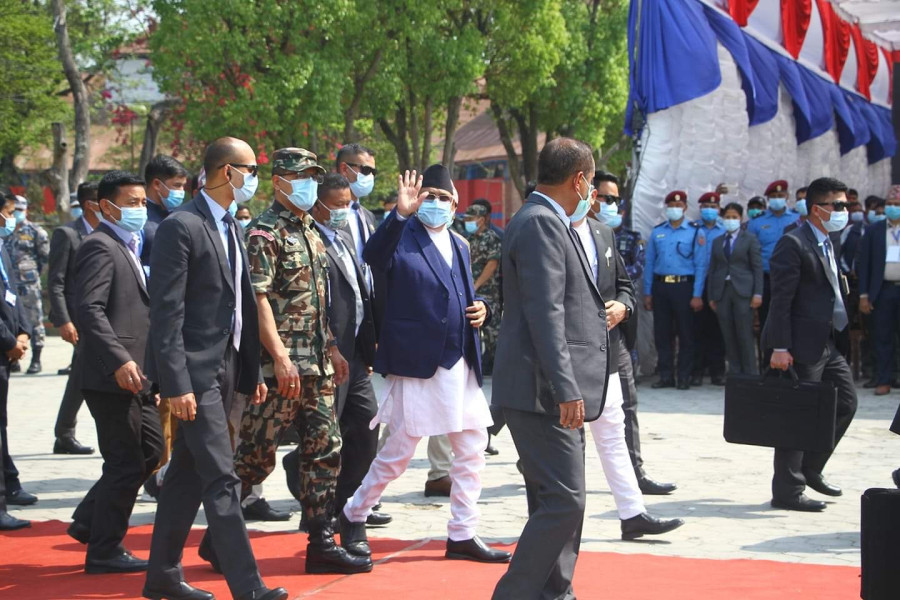Editorial
On the campaign trail
Oli is on an inauguration spree with an eye on elections.
No Nepali citizen perhaps needs to be lectured on how tortoise-like Nepal's infrastructure development process is. The Melamchi water project, which took over two decades to come to fruition, is the most poignant example of the sluggishness that defines our development portfolio. Oli's inauguration of 165 strategic road projects on a single day, thus, seems to be outlandish if not utterly ridiculous. More than strategic roads, Oli's ribbon-cutting spree is a well-calculated political strategy, even a far-sighted electoral strategy as the prime minister already seems to be in election mode.
While a press statement issued by the prime minister's personal secretariat claimed the road projects had been chosen after completion of the due process, officials at the Ministry of Physical Infrastructure and Department of Roads have said many of the projects have not completed their detailed project report (DPR) and environmental impact assessment (EIA) even as they were hurriedly included in the prime minister's jumbo inaugural show on Saturday. Officials say the projects were finalised as late as Friday, and there is no chance the DPR or the EIA for those projects could have been completed as these tasks take months.
But no, Oli cannot wait until these processes are completed. In fact, they are too technical for Oli to consider, for he is not at all interested in whether those projects take off for real. Oli is not on an inauguration spree with a genuine zeal for uplifting Nepal's infrastructure development. In fact, it exhibits his desperation to hold a snap election, as he perhaps believes that it is his only weapon to secure his political power in the days to come. His only interest at the moment is to create an aura about himself as a development man as the prospect of an early parliamentary election becomes more apparent than ever.
The prime minister seems to be of the opinion that an election is his best bet out of the current political imbroglio. That is why most of his actions and speeches in the past few weeks after the Supreme Court invalidated his unconstitutional dissolution of Parliament have focused on conducting elections at the earliest. The fact that political parties opposed to Prime Minister Oli, both within his party and outside, have failed to put up a formidable political coalition to unseat him through a no-confidence motion means that the country might have to go for fresh elections. In such a scenario, Oli, through the inauguration spree, wants to maintain his public image with the populist politics of infrastructure development.
Oli's inaugural spree also exposes how a hurried approach towards infrastructure development leads to a slew of problems, ranging from destruction of the ecology to depletion of financial resources. It is not for no reason that dozer vikaas has become a much-loathed term in the country today. Infrastructure development projects are often begun not because of a genuine necessity of the people, but because of local leaders' zeal to put their bulldozers and other equipment to use in those projects. This has led to a proliferation of projects that do not address the infrastructure gap in the country but rather put unnecessary environmental pressures on our fragile mountains and plains. A basketful of ill-planned development projects are, therefore, more dangerous for the country than underdevelopment, and need to be discouraged.




 27.17°C Kathmandu
27.17°C Kathmandu














